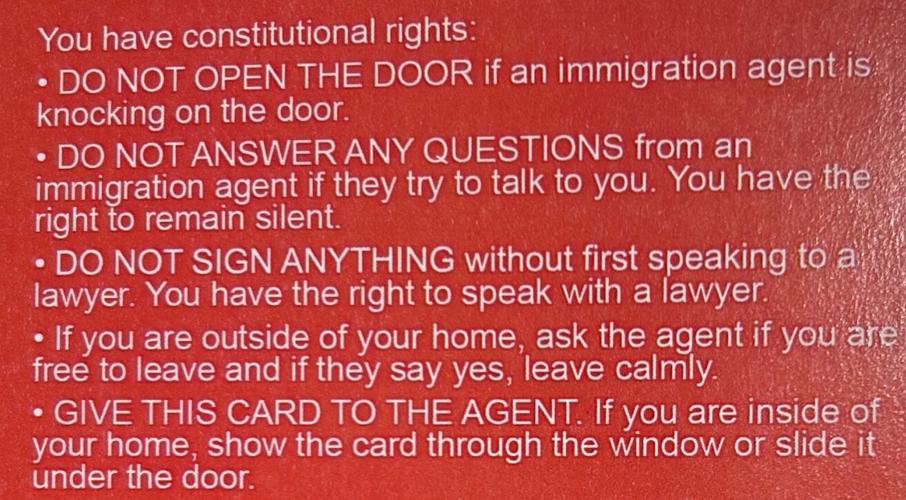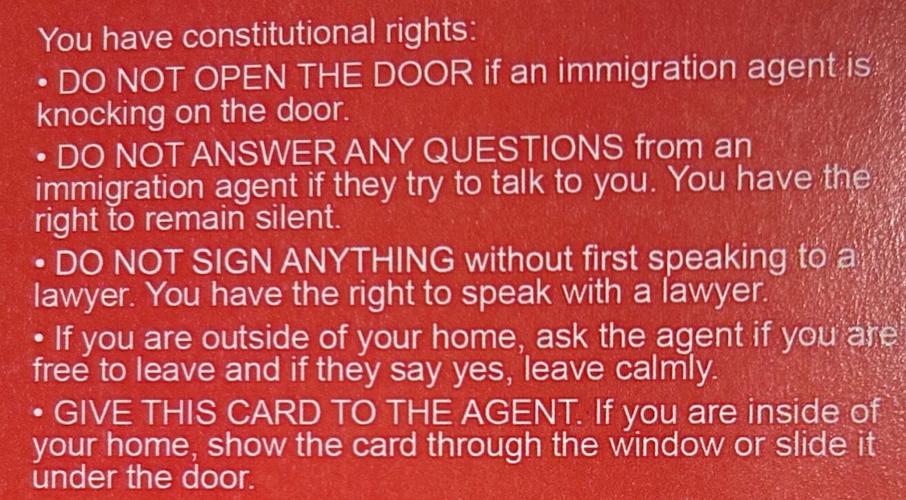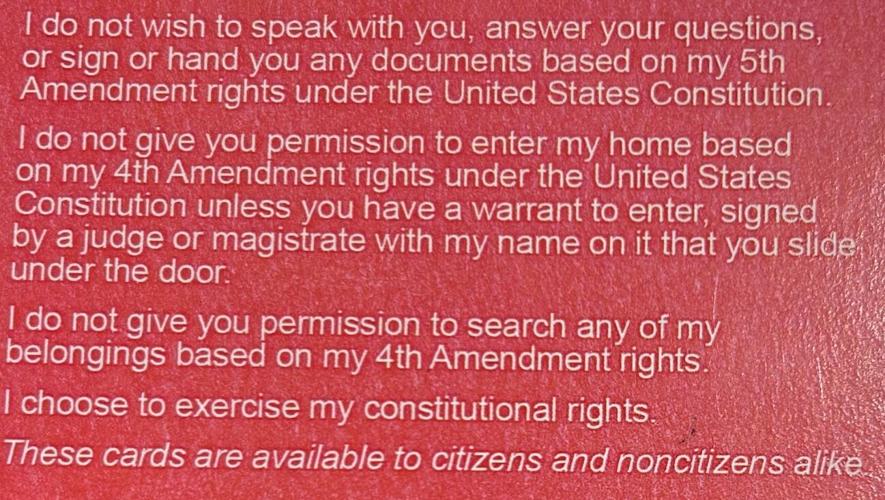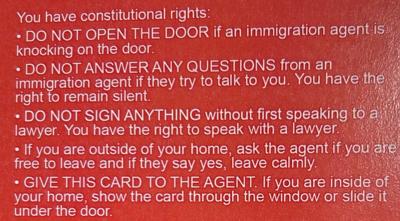GEORGETOWN, Del. - Less than a week into his second presidency, Trump rescinded a Biden-Harris policy that created guidelines for ICE raids. This has led to shelters across the state working to provide the homeless with proper identification.
On Oct. 27, 2021, the U.S. Department of Homeland Security released a memorandum with Guidelines for Enforcement Actions in or Near Protected Areas. According to DHS, the memorandum provided guidance for U.S. Immigration and Customs Enforcement and U.S. Customs and Border Protection enforcement actions in or near areas that require special protection. This went into effect immediately.
In the second paragraph, a number of protected areas were specified which included homeless shelters. This has led to multiple organizations in the state and in Sussex County to work with the homeless to ensure they have proper identification on them in the event they are approached by ICE officers.
On Tuesday, Jan. 21, a DHS spokesperson released a statement on directives expanding law enforcement and ending the abuse of humanitarian parole.
On Friday, Jan. 24, the executive director of Housing Alliance of Delaware emailed homeless programs across Delaware with resources in the event they are approached by an ICE agent.
The resources included a link to a document that provides specific guidance for homeless shelters about things they can do to prepare and respond, including protecting client data, posting signage about private property, and more.
It also included two links with information about expedited removal.
Lastly, a link to a red card. The card is offered in multiple languages.

Immigration red card with constitutional rights.

Immigration red card with what to say if someone encounters an ICE agent.
Trish Hill could be seen talking to people living at the pallet village, handing out red cards. One side of the card lists a person's constitutional rights and the other lists what to say in case he or she encounters an immigration agent.
"We had a meeting with everybody to calm their nerves," Hill explained.
However, Hill says if ICE were to come to the pallet village, it would not create a problem because she says everyone is here legally. Hill says once the Biden-Harris policy that listed guidelines for ICE raids was rescinded days after Trump was sworn in, they began checking with people at the pallet village to see what identification they needed. Hill said this was not because people weren't there legally, but they were concerned that ICE would pick up anyone without an ID.
"For those that were able to get state identification, we took them over to the Georgetown DMV and made sure they had legitimate state IDs," said Hill. "For those who couldn't due to maybe not having a birth certificate, we've contacted DSAMH to help us get temporary cards from them that have their picture and name."
DSAMH is the Division of Substance Abuse and Mental Health.
Hill says the pallet village has an entire fund set aside to help with IDs and have been helping people get proper identification since day one, before any policies were rescinded.
Hill told CoastTV there are a few new people at the pallet village who had not yet gotten their ID's. They were checking to see who might have a recently expired ID or who might have lost theirs.
One local asked how people living at the pallet village are able to get a job without an ID and if they weren't going to get a job, who would be paying for housing, food and other supplies.
Hill says about half of their population is elderly or disabled and on social security. Of the remaining half, about 40 percent of them are working.
Hill says the number one thing she doesn't want people to do is panic, especially when it's not necessary.
"The best thing we can do is pull together as a community and be prepared if something does happen, but not create hysteria within the community."
CoastTV spoke with Mayor Bill West and Town Manager Gene Dvornick who have both shared they, as well as the police chief, aren't aware of any ICE agents in the Georgetown area.
Local shelters say working to secure IDs is just an extra measure of precaution.












